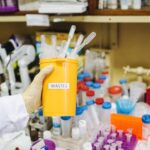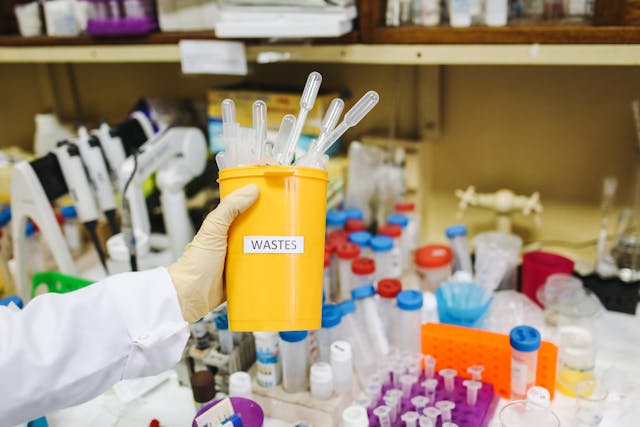Ibogaine, a psychoactive alkaloid derived from the West African Tabernanthe iboga shrub, has gained attention primarily for its potential in treating substance use disorders. However, emerging research, including preclinical studies and observations from clinical settings abroad, suggests that its multifaceted action on the central nervous system (CNS) may lead to a range of profound physiological benefits. Here’s a look at what the science says about the potential physiological benefits of ibogaine.
1. Metabolism Increases
Early research suggests that ibogaine may influence cellular energy metabolism.
- Higher Metabolic Turnover: Studies in rodents indicate that ibogaine can stimulate the production of enzymes involved in glycolysis and the Tricarboxylic Acid (TCA) cycle—the main pathways for generating cellular energy (ATP). This effect on key metabolic enzymes could potentially lead to a higher metabolic turnover in cells, which researchers hypothesize may be favorable for processes like detoxification and reversing tolerance to certain drugs.
- ATP Modulation: Ibogaine and its main active metabolite, noribogaine, have been shown to influence the concentration and release of Adenosine Triphosphate (ATP), the primary energy currency of the cell. This modulation of energy availability is considered a key part of its mechanism of action, particularly in the brain.
2. Anti-Aging Benefits (Antioxidant-Related)
While direct “anti-aging” claims require more robust human evidence, ibogaine exhibits properties that relate to cellular longevity and stress management.
- Pro-Antioxidant Effects: Research suggests that ibogaine can act as a pro-antioxidant, increasing the activity of crucial antioxidative enzymes like superoxide dismutase (SOD1) in human red blood cells in vitro. This effect is theorized to help cells manage oxidative stress, a major factor in aging and disease.
- Adaptogenic Qualities: Due to its influence on oxidative stress and energy-related processes, ibogaine has been described in some pharmacological literature as an adaptogen—a substance that may help the body resist the damaging effects of various stressors.
3. Improved Insulin
The relationship between ibogaine and insulin sensitivity is not fully understood, but its impact on energy metabolism suggests a potential link.
- While direct, robust clinical evidence of improved insulin sensitivity in humans post-ibogaine treatment is limited, the general modification of brain energy metabolism and cellular processes, as noted in preclinical studies, hints at a broader metabolic impact. Metabolic disorders, including insulin resistance, are intricately linked to cellular stress and energy regulation, areas where ibogaine shows activity. Further dedicated research is needed to confirm any direct benefits for insulin regulation.
4. Restoration of the Central Nervous System (CNS)
The most compelling and clinically relevant findings relate to ibogaine’s effect on neurobiology and neuroplasticity, particularly in the context of substance use disorders and traumatic brain injury (TBI).
- Neurotrophic Factor Release: Ibogaine has been shown in animal models to promote the expression of neurotrophic factors such as Glial Cell-Derived Neurotrophic Factor (GDNF) and Brain-Derived Neurotrophic Factor (BDNF) in key brain regions. These proteins are critical for the survival, differentiation, and growth of neurons, essentially supporting brain health and neuroplasticity (the brain’s ability to reorganize itself).
- Neuro-Regeneration: Observational studies involving military veterans with TBI and PTSD have suggested that ibogaine treatment may lead to regenerative effects in the human brain, including the global restoration of white matter and the reversal of physiological brain age, as indicated by diagnostic imaging.
- Neural Circuitry Reset: One of the most frequently cited effects is ibogaine’s ability to “reset” the neural circuitry that underpins addiction, potentially by clearing and modulating various neurotransmitter receptors (opioid, serotonin, NMDA, etc.) and restoring the organic production of chemicals like dopamine and serotonin to pre-addiction levels.
5. Body Cleansing (Detoxification)
Ibogaine’s perceived “cleansing” effect is directly tied to its established use in drug detoxification.
- Rapid Detoxification: In controlled clinical settings, a single dose of ibogaine has been associated with the elimination or drastic reduction of opioid withdrawal symptoms within 24 to 72 hours. This ability to quickly interrupt the intense physical dependence on substances is the core of its “detoxification” action, allowing individuals to transition rapidly to abstinence.
- Mood and Craving Reduction: Beyond physical withdrawal, studies have shown that ibogaine significantly reduces drug cravings and improves mood (reducing depression and anxiety) following treatment, which supports the mental and emotional aspects of “cleansing” or recovery.
6. Improved Sleep
The effects of ibogaine and its metabolite on sleep are notable, though they can be complex.
- Acute Effects: Acutely, ibogaine and noribogaine have been shown in rat studies to promote wakefulness and cause a robust and long-lasting suppression of REM sleep (Rapid Eye Movement, the deep, dreaming phase).
- Post-Treatment Clarity: Following the acute phase (which can last 24 to 72 hours), many human users anecdotally report a “residual phase” marked by feelings of mental clarity and a reduced need for sleep, which some interpret as a temporary period of heightened wakefulness and mental energy, though this is not necessarily improved long-term sleep architecture. The long-term effects on normalized sleep cycles after recovery from substance use are an area of ongoing research, often reporting subjective improvements in overall well-being.
7. Increased Testosterone
Currently, there is no substantial, scientifically accurate evidence to support a claim that ibogaine treatment reliably causes a direct, clinically significant increase in testosterone levels in humans.
- While preclinical studies on ibogaine’s anti-addictive effects have sometimes revealed changes in genes related to hormonal pathways in animal models, these findings do not equate to a consistent increase in testosterone in human males or females. Any potential long-term hormonal normalization would most likely be a secondary effect of recovering from severe chronic stress or substance abuse, rather than a direct pharmacological action of ibogaine itself.
In Summary: The scientific promise of ibogaine lies in its unique ability to modulate neurotrophic factors for CNS restoration and its strong impact on cellular energy metabolism and antioxidant defense mechanisms. While its use is highly restricted and carries known risks, the research community is actively working to understand how to harness these powerful physiological effects safely.














